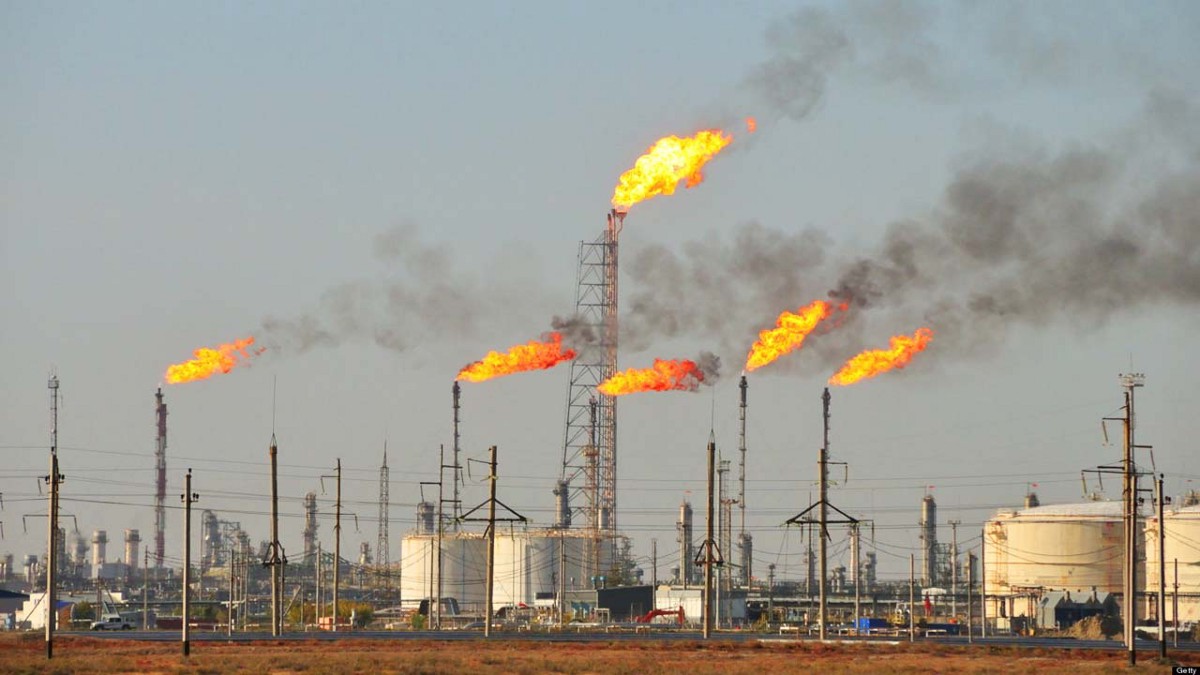Opinion
Why Nigeria Should Consider Scaling Back Natural Gas Ambitions
By Prince Israel Orekha

Examining the current developments in Nigeria’s hydrocarbon industry gives me hope that the nation might be on the verge of transitioning away from fossil fuels, and instead, adopting progressive energy and economic strategies.
The Statistical Review of World Energy shows that we dropped our natural gas volumes last year to an estimated 40 billion cubic meters. This led to a slump in our LNG exports to 19.6 billion cubic meters—the lowest level it has dropped to in ten years.
My optimism has however been disturbed by the interpretations of this scenario with some viewing global geopolitics such as the G7 embargo on Russian crude oil exports as an opportunity for Nigeria to earn great revenue fortunes from these hydrocarbons, especially natural gas.
However, as I will argue herein, natural gas will not solve Nigeria’s energy woes. As such, all activities and strategies that focus on investing any form of resource in the sector with the goal of cracking a plan for long-term viability should be discouraged.
Notwithstanding the recent declines in gas production volume, Nigeria still ranks among the global top 10 natural gas producers. Studies show natural gas is about 10% to blame for global warming.
The effects of global warming are more well-lived today than ever, yet with each passing day, the rate of destruction being posed to the planet increases. 2021 data from the World Meteorological Organization (WMO) found that greenhouse gas concentrations hit historic highs that year, dimming the hopes of avoiding the 1.5-degree threshold, which is now projected to come sooner, by 2027. Hitting and surpassing this threshold means we will experience even harsher climate change effects.
Being a hydrocarbon, natural gas is a dirty source of energy. An assessment of the chemical substances in it reveals it contains substances like ethane and methane, as well as other hydrocarbons including pentane, propane, butane, and hexane. Methane, which forms close to 95% of natural gas, is estimated by the UNEP to be 84–86 times more greenhouse potent than CO2 over a 20-year period and 28–34 times more potent over a century.
Apart from its greenhouse effects, the health hazards posed by gas cannot be underestimated. At every stage of the natural gas value chain, it emits dangerous levels of methane, leading to respiratory and maternal health complications. The Niger Delta, a cornerstone of Nigeria’s gas and oil extraction, now ranks among the most polluted places on Earth. This grim title is reflected in studies highlighting Port Harcourt’s elevated rates of lung and skin cancer, rendering the region one of the most cancer-prone areas in Africa and globally.
Furthermore, gas extraction has led to both water pollution and scarcity. Drilling with hydraulic fracturing causes substantial water loss and contaminates groundwater. The remaining population depends on possibly contaminated surface water, with less than 20% of the population receiving regular piped water. Over 230,000 people live within 2 kilometers of a gas flare, making them directly vulnerable to the health hazards of gas exploitation.
Gas flaring in Nigeria has incurred a colossal loss of over US $22.9 billion between 2011 and 2021, with 48 million metric tons of GHG gases released into the atmosphere. The true impact, however, extends beyond monetary figures, encompassing immense volumes of natural gas recklessly released into the environment.
The crux of the matter arises from gas consumption. Burning gas for energy emits staggeringly large quantities of harmful emissions, yet Nigeria continues to invest in gas-fired power plants. While arguments have been made for gas as a transitional fuel, we must consider viable alternatives.
Salisu Dahiru, Director General of the National Council on Climate Change, rightly emphasizes the economic ramifications of cutting ties with gas. While all these are accurate arguments considering Nigeria’s over-dependence on oil and associated gas cannot be pushed under the carpet, it is not proper to argue that we are short of solutions and alternatives.
Nigeria boasts a concentrated solar thermal power potential of over 427000 MW, in stark contrast to the current production of about 5000 MW. The hydropower sector holds similar promise, generating only 3.5 GW of electricity against a potential of over 24 GW. These, along with wind energy and innovative options like green hydrogen, could not only improve the health of millions but also boost the economy while ensuring stable access to clean energy.
Despite the entrenched reliance on oil and gas, transitioning to these alternatives promises far greater benefits. Nigeria laid the groundwork with its National Climate Change Policy and Response Strategy in 2012. However, the investment gap in renewable energy compared to the gas and hydrocarbon sectors is stark.
A 2022 report by the Climate Policy Initiative revealed that in 2019/2020, an average of USD 1.9 billion per year of public and private capital was invested in climate-related activities in Nigeria. While significant, this translates to just about 11% of the estimated USD $17.7 billion needed annually to meet the conditional Nationally Determined Contribution (NDC) target of reducing emissions 47% below business-as-usual by 2030.
Closing this gap requires innovative funding solutions aligned with the global shift towards climate-friendly alternatives.
Ultimately, the private sector is pivotal in unlocking the necessary finance. We need to foster an atmosphere that encourages private sector participation rather than reinvesting the meager gas and oil revenues back into the natural gas value chain. This strategy, in my opinion, is the one that will not only save Nigeria but also help to mend our planet, protect Nigerians’ health and well-being, and create desperately needed job opportunities.
Prince Israel Orekha is the Executive Director of Connected Advocacy
Send Us A Press Statement Advertise With Us Contact Us
And For More Nigerian News Visit GWG.NG

